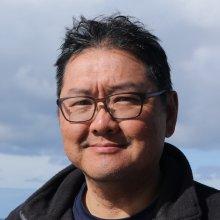
Ray Lee
Tell us about your work / research. What kinds of things do you do?
I study adaptations of aquatic organisms to environmental stress. In particular, I am interested in how vent animals cope with high temperature and chemical stress. We have shown that the sulfide worms at Endeavour have the highest thermal tolerance documented for a marine animal. How frequently these and other vent species experience thermal (as well as chemical) stress and the physiological and biochemical ways that they deal with this stress is one of my main research questions.
What sparked your initial interest in your career?
I have always been interested in nature and the ocean, but also developed a passion for teaching and gadgets. This has led to a career in academia where I can inform students about the deep sea and develop and participate in new approaches to study these remote environments.
Who influenced you or encouraged you the most?
In oceanography, we spend weeks at sea working with other scientists. The many colleagues you get to interact closely with on cruises, and the intensive multidisciplinary immersion in science, have most profoundly influenced my thinking about the deep sea and science.
What element of your work / study do you think is the most important?
I think curiosity drives most scientists. It is like how my cat really wants to know what is behind the door that is always closed. He behaves like what is behind the door must be the most intensely interesting room in the universe. The deep sea is behind such a door, and we know it is important and transformative.
What other jobs led you to your current career?
The hiring for my academic position was based on research, but we also teach a lot. I was an outdoor education instructor in college, and also a high school biology teacher. This reinforced my interest in science and greatly informs my approach to teaching.
What are your degrees and certifications?
B.A. Biology Pomona College 1987, Ph.D. Biology University of California Santa Barbara 1994
What are your hobbies?
Bamboo fly rods, photography, choral music, learning about Asian and French cooking, stable isotopes, cats, home science experiments. I always ask prospective research students what their hobbies are, this can often speak volumes about what types of science they will be most interested in.
What advice would you give to someone who wants to have a career like yours?
Read a lot, write a lot, embrace computing and technology, learn how to conceive projects and carry them out to completion, figure out what types of topics or activities are so engaging to you that you become lost in them and lose track of time.
Expeditions
Ray participated in the following Ocean Exploration Trust expeditions:
